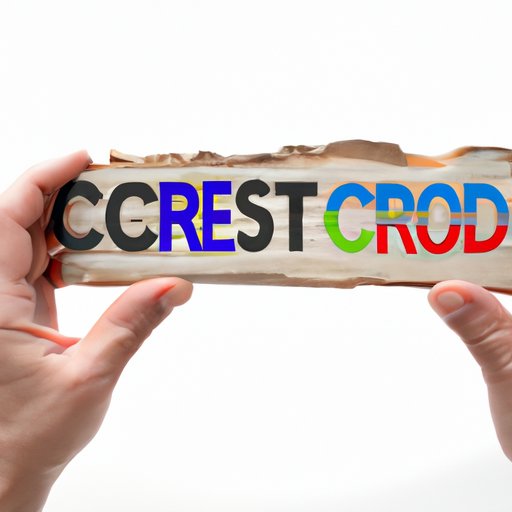Introduction
Establishing good credit is an important part of adulthood. It can open up new opportunities, such as lower interest rates on mortgages and car loans, and make it easier to rent an apartment or secure a loan. Starting credit at 18 can help young adults build a strong credit history that will serve them throughout their lives.
Definition of Credit
Credit is a type of loan that allows consumers to buy products now and pay for them later. When someone applies for credit, lenders review their credit report to determine if they are likely to pay back the loan. This process is called underwriting. A credit score is then calculated based on the information in the report. The higher the score, the more likely the person is to be approved for credit.

Benefits of Starting Credit Early
Starting credit early has many benefits. According to the Consumer Financial Protection Bureau, “building a good credit history early on can give you access to better rates on mortgages, auto loans, and other forms of credit down the road.” It also helps demonstrate financial responsibility, which may be necessary when applying for jobs or renting an apartment. Finally, starting credit early allows young adults to practice responsible borrowing habits while they are still living with their parents and have less financial risk.
Types of Credit Available to 18-Year-Olds
There are several types of credit available to 18-year-olds. Secured credit cards are one option. These cards require a cash deposit, usually equal to the amount of the credit limit. The deposit serves as collateral for the lender and makes it easier for 18-year-olds to get approved for credit. Unsecured credit cards are another option. These cards do not require a deposit and may be easier to qualify for.
Student loans are another type of credit available to 18-year-olds. These loans typically have low interest rates and generous repayment terms. They can be used to pay for tuition, books, and other school-related expenses. Store credit cards are another option. These cards are only valid at certain stores and often have high interest rates.

Building a Positive Credit History
Once 18-year-olds have secured a form of credit, they must begin to build a positive credit history by making payments on time and keeping their balances low. Making payments on time is essential for building a good credit score. According to Experian, “35 percent of your credit score is based on your payment history, so paying on time is crucial.” Keeping balances low is also important. Using too much of the available credit can hurt a credit score.
It is also important to request higher credit limits. Having a higher limit can help keep balances low and improve the credit utilization ratio. The credit utilization ratio is the amount of available credit that is being used. The lower the ratio, the higher the credit score will be.
Finding the Right Credit Card
When choosing a credit card, it is important to compare interest rates and fees. Many credit cards have an annual fee, balance transfer fee, and late payment fee. It is also important to read the cardholder agreement carefully. This document outlines all of the rules and regulations associated with the card. Finally, it is beneficial to look for cards that offer rewards programs. These programs allow cardholders to earn points or cash back on purchases.
Financial Responsibility Strategies for 18-Year-Olds
In addition to using credit responsibly, 18-year-olds should also develop a budget and set financial goals. Creating a budget can help young adults track their spending and stay within their means. Setting financial goals can help them save for the future. Finally, 18-year-olds should avoid overspending. Overspending can lead to debt and damage their credit scores.
Conclusion
Starting credit at 18 can be an important step in becoming financially independent. There are several types of credit available to 18-year-olds, including secured and unsecured credit cards, student loans, and store credit cards. Building a positive credit history requires making payments on time, keeping balances low, and requesting higher credit limits. 18-year-olds should also create a budget, set financial goals, and avoid overspending. With careful planning and a commitment to responsible borrowing, 18-year-olds can establish good credit and reap the benefits for years to come.
Summary
Starting credit at 18 can open up new opportunities and help young adults establish a strong credit history. There are several types of credit available, including secured and unsecured credit cards, student loans, and store credit cards. To build a positive credit history, 18-year-olds must make payments on time, keep balances low, and request higher credit limits. In addition, they should create a budget, set financial goals, and avoid overspending. With careful planning and a commitment to responsible borrowing, 18-year-olds can begin to establish good credit.
Final Thoughts
Establishing good credit can help 18-year-olds secure lower interest rates on loans and open up new opportunities. By learning how to use credit responsibly, young adults can build a strong credit history that will benefit them for years to come.
(Note: Is this article not meeting your expectations? Do you have knowledge or insights to share? Unlock new opportunities and expand your reach by joining our authors team. Click Registration to join us and share your expertise with our readers.)
